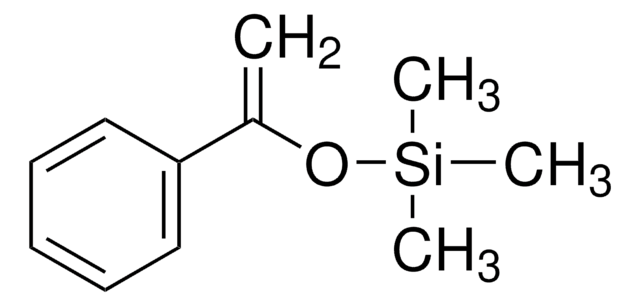261114
Gadolinium
ingot, 99.9% trace rare earth metals basis
About This Item
Empfohlene Produkte
Assay
99.9% trace rare earth metals basis
Form
ingot
Eignung der Reaktion
reagent type: catalyst
core: gadolinium
Widerstandsfähigkeit
126 μΩ-cm, 20°C
bp
3273 °C (lit.)
mp (Schmelzpunkt)
1313 °C (lit.)
Dichte
7.886 g/mL at 25 °C (lit.)
SMILES String
[Gd]
InChI
1S/Gd
InChIKey
UIWYJDYFSGRHKR-UHFFFAOYSA-N
Suchen Sie nach ähnlichen Produkten? Aufrufen Leitfaden zum Produktvergleich
Signalwort
Warning
H-Sätze
Gefahreneinstufungen
Water-react 3
Lagerklassenschlüssel
4.3 - Hazardous materials which set free flammable gases upon contact with water
WGK
WGK 3
Flammpunkt (°F)
Not applicable
Flammpunkt (°C)
Not applicable
Persönliche Schutzausrüstung
Eyeshields, Gloves, type P3 (EN 143) respirator cartridges
Hier finden Sie alle aktuellen Versionen:
Besitzen Sie dieses Produkt bereits?
In der Dokumentenbibliothek finden Sie die Dokumentation zu den Produkten, die Sie kürzlich erworben haben.
Artikel
Today, near-room-temperature refrigeration is almost entirely based on a vapor-compression refrigeration cycle.
Technologies are an integral part of our lives and we rely on them for such things as communication, heating and cooling, transportation, and construction. Improvements to technologies have made what they do for us more precise, automated, efficient, and powerful.
A significant limiting factor for wearable electronics and wireless sensors is the finite amount of energy that can be stored in on-board batteries.
Rechargeable solid-state batteries are becoming increasingly important due to wide-spread use in computers, portable electronics, and vehicular applications.
Unser Team von Wissenschaftlern verfügt über Erfahrung in allen Forschungsbereichen einschließlich Life Science, Materialwissenschaften, chemischer Synthese, Chromatographie, Analytik und vielen mehr..
Setzen Sie sich mit dem technischen Dienst in Verbindung.





